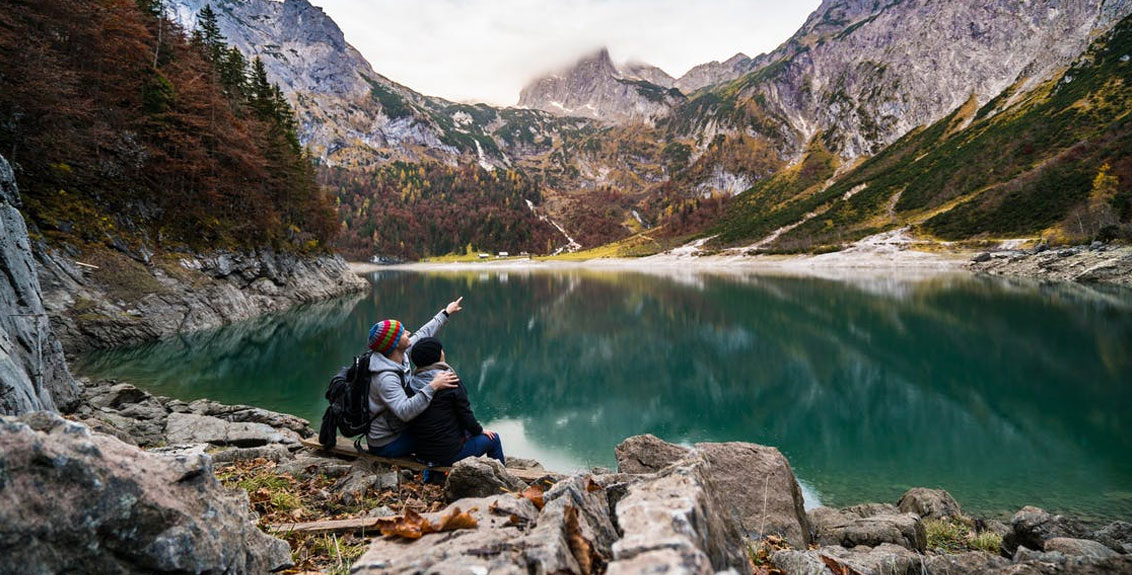28 March 2023
When I wrote last year’s 2022 Adventure Travel Trends article, the WHO and UNWTO were still urging nations to lift blanket travel bans and mandatory vaccination requirements, and international travel was still working to recover in a meaningful way. Sustainability was just beginning to enter the general mindset as a consideration when traveling (although it was already more prevalent among adventure travelers), and Diversity, Equity, and Inclusion were becoming more commonly discussed within business practices.
Although progress has been made in the COVID-19 recovery, especially as the pre-pandemic travel powerhouse China reopens its borders for both inbound and outbound travel, many of the 2022 trends are continuing, and new ones are emerging.
By summarizing our internal data and what we are hearing from other industry research and anecdotally within our community, here are some trends we at the Adventure Travel Trade Association (ATTA) expect to see in the adventure travel industry in 2023.
Continued Global COVID-19 Recovery
According to recent research, the majority of people (73%) are now more optimistic about traveling compared to 2022. Despite the ongoing global economic and political uncertainty as we enter 2023, an overwhelming majority (72%) still believe that traveling is worthwhile.
While many parts of the world have already fully recovered to pre-pandemic travel levels in 2022, the Asia Pacific region had only reached 73% of its 2019 travel volume as of January 2023, as reported by the Skift Travel Health Index. However, with the return of Chinese travelers to international travel as Q2 of 2023 approaches, overall tourism in 2023 is estimated to reach 2019 levels.
Nature tourism remains a top priority for travelers worldwide as it contributes to their overall wellness. The resurgence in travel is generating innovative approaches to outdoor activities that enable travelers to explore nature and engage with host communities in a more meaningful way. These novel experiences are not restricted to rugged activities and are accessible to all travelers.
Balancing Visitor Quality and Quantity/Overtourism
Tying in with the continued recovery from COVID-19, destinations must be cautious about how they welcome visitors back. In last year’s trends article we looked at how the pandemic gave destinations a chance to pause and reevaluate their future plans, acknowledging that many over visited destinations like Machu Picchu and Barcelona were taking actions to reduce their visitor load.
However, the pushback from travelers wanting to visit Machu Picchu resulted in a 33% increased daily admission capacity in July 2022, moving from 3,044 to 4,044. Only a few months later, after the political turmoil in the country caused the UNESCO World Heritage Site to close for a short time in early 2023, it reopened with a maximum of 2,500 daily visitors. This is only one example of the challenges that adventure tourism sites face when trying to balance demand while protecting their important natural and cultural assets.
Adventure travelers spend an average of $2,500 per person in the local economy, compared to just $1,100 for overnight package tourists. This is a compelling argument for destinations to consider when they are debating between fewer higher-value travelers and a higher number of lower-value mass travelers – simply generating more visitors is often not the answer to achieving a sustainable tourism product. ATTA is seeing this awareness influencing COVID recovery in many regions around the world, for example Tunisia’s work to create new tourism products and new jobs in the regions of Zaghouan, Mahdia, El Kef, and Tozeur, through working with local players in outdoor/adventure/nature tourism.
It is worth noting that to further complicate this trend, by some measures visitors on a budget may stay in a destination longer, engage with the local community, and practice more sustainable tourism – even if they spend less money, they might be considered a “high values” traveler.
Wellness Retreats, Breaks, and Activities
According to research from Expedia, wellness breaks have made a comeback in 2022, with a demand increase of over 30%. Global travelers are now more open to wellness breaks than before, with 46% showing interest. However, travelers seem to prefer unconventional stays for wellness breaks, with sylvotherapy (forest bathing), chakra sessions, food boot camps, puppy yoga, laughter therapy, and fruit harvesting gaining more popularity than traditional options like cookery courses, sports trips, and meditation sessions.
Wellness retreats are evolving and becoming more creative, as resorts offer unique and offbeat retreats. Beekeeping, mushroom foraging, native plant foraging, and botany drawing are just some of the innovative activities that are becoming increasingly popular for wellness retreats in 2023.
In the year ahead, travelers are looking to incorporate healing activities into their itineraries in inventive ways, taking “microadventures” that engage with nature locally for smaller, shorter excursions. According to Wunderman Thompson, studies indicate that these microadventures are as impactful on mental and emotional health as traditional longer getaways. Additionally, Booking.com found that 42% of travelers are looking for a break that focuses on their mental and physical health, including retreats to smooth the processes of pregnancy and menopause, while almost half (44%) seek meditation or mindfulness retreats.
Climate Change and Carbon Awareness
The tourism industry is already experiencing the effects of climate change, with extreme heat causing flight cancellations and disrupted rail journeys in 2022. As this crisis persists, cooler destinations are marketing themselves as more comfortable options, while hotter locations are struggling to retain visitors. Climate change will likely be an important factor when planning trips in the future.
Travelers are becoming more mindful and seeking ways to reduce or offset their carbon emissions. Travel brands are responding to this demand in various ways. Global Family Travels, for example, has developed educational adventures to inspire climate action among participants. Recently, the company launched a groundbreaking transformational adventure to Iceland, which is uniquely designed to be carbon-neutral. This trip includes first-hand witnessing of the dramatic changes caused by climate change in Iceland and immersing participants in living science.
The Adventure Travel Trade Association is incubating the world’s first collective action vehicle to rally travel to support carbon dioxide removal with permanent storage: Tomorrow’s Air. Through a carefully curated portfolio of carbon dioxide removal innovators the ATTA supports climate conscious travel education along with the scale up of carbon dioxide removal technologies.
Transportation Awareness
Transportation is the most significant contributor to the greenhouse gas emissions in travel, accounting for 49% to 75% of the overall emissions generated in the industry. This is a very challenging component to reduce or eliminate since transportation is at the very core of travel, but the adventure travel industry is working to make improvements to their processes.
Tour operators acknowledge the importance of increasing the sustainability of their itinerary transportation options: 53% of respondents to an ATTA survey for our September 2022 Responsible Transitions in Transport report agree they need to work on changing to more sustainable means of transport, and they are making it a priority for the next 12 months. This topic was discussed at the 2022 Adventure Travel World Summit in Lugano, Switzerland; the recording is publicly available here.
Research in Amadeus’ Traveler Tribes 2033 report found that while 35% of travelers express excitement about the prospect of more environmentally friendly travel options, 63% are unwilling to pay extra for biofuel-powered flights. When presented with five sustainable transportation options in 2033, only 19% of travelers were very likely to choose an option that required them to make a notable sacrifice, such as supporting a limit on international travel or occasionally opting for virtual travel.
Together with Intrepid, ATTA has compiled research and recommendations around the facts of aviation’s role in climate change, how the travel industry and aviation organizations are responding, and how travelers can build their knowledge about carbon offsets and removals.
Diversity, Equity, and Inclusion
In 2022 we reported how this was becoming an important topic in the adventure travel niche, but had not yet quite reached the overall industry trends reports. In 2022 these initiatives started to become more mainstream, and efforts are expected to grow in 2023.
According to Matt Berna of Intrepid Travel, in response to the domestic travel boom and increasing recognition of the importance of Indigenous and First Nations tourism, tour operators have begun putting a focus on developing more Indigenous experiences. Travel Alberta has just invested $6 million in direct and in-kind support over the next three years to Indigenous Tourism Alberta (ITA). This investment will assist Indigenous tourism operators in developing new goods, expanding existing services, and attracting more visitors to their experiences. Australia’s newest tourist campaign is encouraging visitors to travel to lesser-known destinations and invest in local communities.
Tripadvisor recently introduced the capability for business owners to self-identify using attributes such as “Black-owned, Indigenous-owned, LGBTQ-owned, woman-owned, Asian-owned, and Hispanic/Latinx-owned,” making it easier for travelers to find and support businesses from a wide range of communities and backgrounds.
Martinique Lewis updated her Diversity in Travel Scorecard in 2022, showing that the industry still has a long way to go, with all categories receiving a D or F (failing) grade. While it calls out all of the work that still needs to be done, her post also celebrates travel brands that are doing the work and taking real action.
Multi-Generational and Multi-Activity Travel
The popularity of multi-generational travel is on the rise, with the trend gaining renewed momentum due to the pandemic-induced isolation requirements. Families are now seeking bucket-list trips to reconnect and bond with their loved ones after the time and memories missed during the pandemic. Lemongrass Marketing’s Digital Insights team has reported a significant rise in searches for “teenage family adventure holidays UK” (up by 750% in the past 5 years), “multi-activity adventure holidays,” and “solo adventure holidays” (up by 90% in the same period).
In 2023, there is an increasing demand for multi-activity adventure vacations that allow travelers to experience a variety of new activities. For example, tour operator Slow Adventure offers several exciting multi-adventure trips incorporating multiple activities in one destination. This type of itinerary also supports multi-generational travel, by giving options and being more inclusive of different abilities and interests.
Unexplored Destinations
In 2023, adventure travelers are seeking to embrace the unknown through extreme immersion and unconventional itineraries. There is an increasing desire for unfamiliar destinations and eccentric experiences.
In contrast to the past few years when travel hotspots were trying to limit crowds and protect monuments, an increasing number of destinations are now showcasing previously inaccessible areas to draw in travelers seeking one-of-a-kind experiences. This includes initiatives like Saudi Arabia investing $1 trillion in tourism and opening ancient heritage sites for the first time, aiming to attract 100 million tourists a year by 2030. In 2025 Rome is reopening the Catacomb of Commodilla, constructed in the fourth century, after being restored by the Vatican’s Pontifical Commission for Sacred Archaeology.
Travelers seeking adventure are even headed into space and deep underwater. While it remains to be seen how these new frontiers will fit into adventure travel as we know it, diving nearly 2.5 miles underwater in the North Atlantic to explore and support scientific research on the Titanic with OceanGate Expeditions certainly will find a place within our community.
source: adventuretravelnews.com




